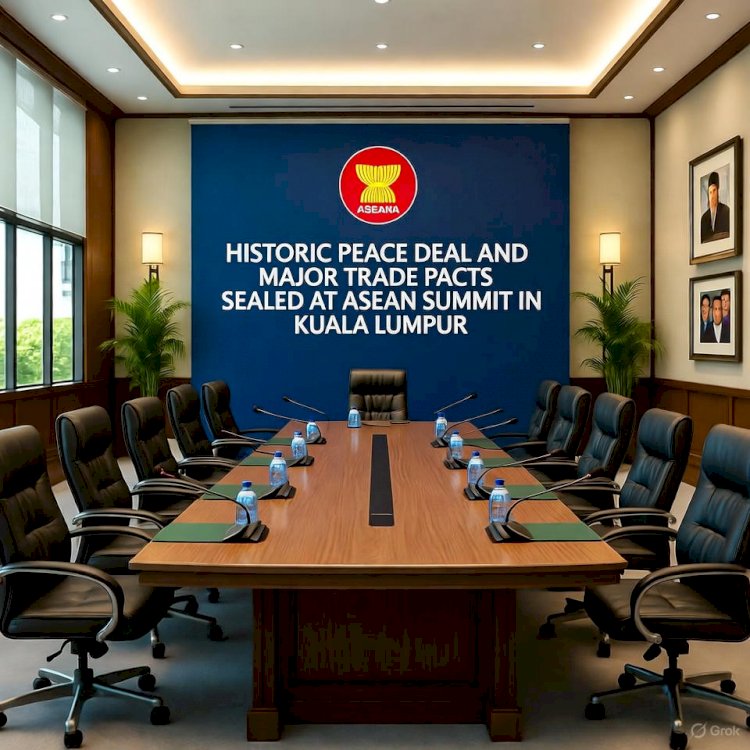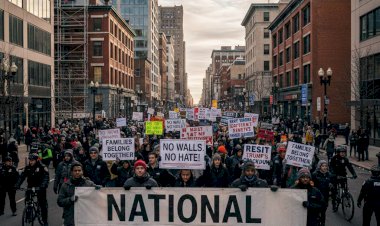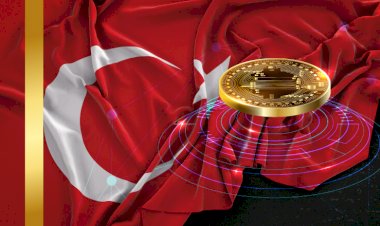Historic Peace Deal and Major Trade Pacts Dominate ASEAN Summit in Kuala Lumpur

Kuala Lumpur, Malaysia – World leaders gathered under the towering spires of the Kuala Lumpur Convention Centre on Sunday as the 47th Association of Southeast Asian Nations (ASEAN) Summit kicked off, marking a pivotal moment for regional unity amid escalating global tensions. Hosted by Malaysia in its role as 2025 chair, the three-day event – running from October 26 to 28 – is themed "Inclusivity and Sustainability," emphasizing collaborative efforts to bridge development gaps, combat climate change, and foster economic resilience.
The summit, attended by nearly two dozen heads of state and government from ASEAN's 10 member nations – Brunei, Cambodia, Indonesia, Laos, Malaysia, Myanmar, the Philippines, Singapore, Thailand, and Vietnam – sets the stage for high-stakes discussions on trade, security, and digital transformation. U.S. President Donald Trump, making his first Asia-Pacific trip since re-election, arrived to a backdrop of diplomatic breakthroughs and protests, underscoring the summit's blend of optimism and controversy.
Historic Ceasefire Seals Opening Day
In a dramatic highlight, Trump oversaw the signing of the "Kuala Lumpur Peace Accords," an expanded ceasefire between Thailand and Cambodia, ending months of border skirmishes that had threatened regional stability. Malaysian Prime Minister Anwar Ibrahim, Thailand's Prime Minister Anutin Charnvirakul, Cambodia's Prime Minister Hun Manet, and Trump stood shoulder-to-shoulder as documents were exchanged, with Ibrahim hailing the agreement as "a testament to ASEAN's diplomatic muscle."
"This is not just peace on paper; it's prosperity unlocked," Trump declared, crediting U.S. mediation for the deal. The accord includes provisions for joint border patrols and economic zones, potentially easing tensions rooted in ancient territorial disputes. Analysts note the timing aligns with Washington's push to counterbalance Chinese influence in the South China Sea.
Trade Deals and Mineral Pacts Counter Global Headwinds
Economic integration dominated the agenda, with Trump securing a flurry of bilateral trade frameworks. Malaysia committed to reciprocal deals reducing tariffs on U.S. agricultural and tech imports, while pledging not to restrict rare-earth mineral exports – a critical win amid Beijing's tightening controls on these strategic resources. Vietnam agreed to a pact addressing its $123 billion trade surplus with the U.S. by boosting purchases of American energy and machinery, and Thailand pledged to eliminate tariffs on 99% of U.S. goods, alongside easing investment barriers.
These agreements, framed as countermeasures to the ongoing U.S.-China trade war, aim to rebalance supply chains and shield ASEAN economies from volatility. "We're building a framework for fair trade that puts American workers first, but lifts everyone up," a U.S. negotiator told reporters. On the sidelines, the 5th Regional Comprehensive Economic Partnership (RCEP) Summit and 3rd Asia Zero Emission Community (AZEC) Leaders' Meeting advanced green initiatives, including commitments to carbon-neutral shipping lanes by 2030.
East Timor's Entry: A New Chapter for ASEAN
The summit marked a milestone with East Timor's formal accession as the 11th member, depositing its instrument of ratification for the ASEAN Charter and Southeast Asia Nuclear-Weapon-Free Zone Treaty. President José Ramos-Horta, whose vision for integration dates back to the 1970s, called it "the fulfillment of a half-century dream." This expansion, the first since 1999, bolsters ASEAN's population to over 680 million and strengthens its voice in Indo-Pacific affairs.
Broader Dialogues: India, Japan, and Beyond
Parallel sessions amplified ASEAN's global outreach. Indian Prime Minister Narendra Modi joined virtually for the 22nd ASEAN-India Summit, congratulating Malaysia on its hosting and welcoming East Timor. "This is the century of India and ASEAN," Modi said, announcing 2026 as the ASEAN-India Year of Maritime Cooperation to enhance security, disaster response, and blue economy ties. He extended condolences to Thailand over the recent passing of Queen Mother Sirikit and praised the Philippines for its role as India's coordinator.
The ASEAN-Japan Summit, featuring Foreign Minister Sanae Takaichi, focused on tech transfers and disaster resilience, while the ASEAN-India dialogue underscored cultural bonds dating back millennia. PM Ibrahim, in his opening remarks, lauded Modi's "personal friendship" and the "special relations" between Malaysia and India.
Protests and Geopolitical Shadows
Not all notes were harmonious. Hundreds of pro-Palestinian demonstrators rallied in Kuala Lumpur's Independence Square and Ampang Park, waving signs and cutouts of Trump's face to protest U.S. support for Israel's Gaza operations. "No trade deals while bombs fall," chanted the crowd, which police monitored peacefully. The protests highlighted ASEAN's delicate balancing act on global flashpoints, including Myanmar's crisis and South China Sea disputes.
As the summit unfolds through Tuesday, expectations run high for the Kuala Lumpur Declaration on ASEAN 2045, a forward-looking blueprint extending the bloc's 2025 Community Vision. With digital economy frameworks, upgraded trade pacts, and climate pledges on the table, Malaysia's chairmanship – already credited with humanitarian aid to Myanmar and broader Treaty of Amity accessions – aims to position ASEAN as the Indo-Pacific's "growth engine."
In his closing address to open the plenary, Ibrahim urged unity: "Inclusivity means no one left behind; sustainability means our shared future endures." As leaders depart, the echoes of handshakes and accords may just drown out the distant chants – for now.

 content-team
content-team 


















